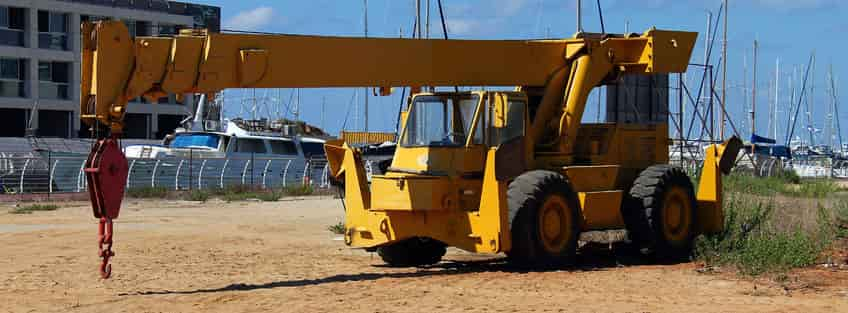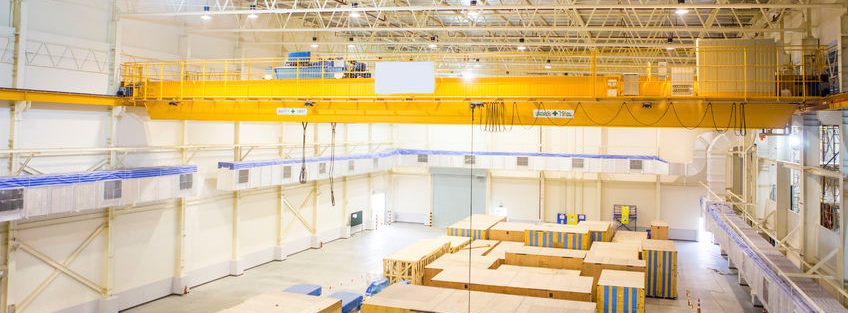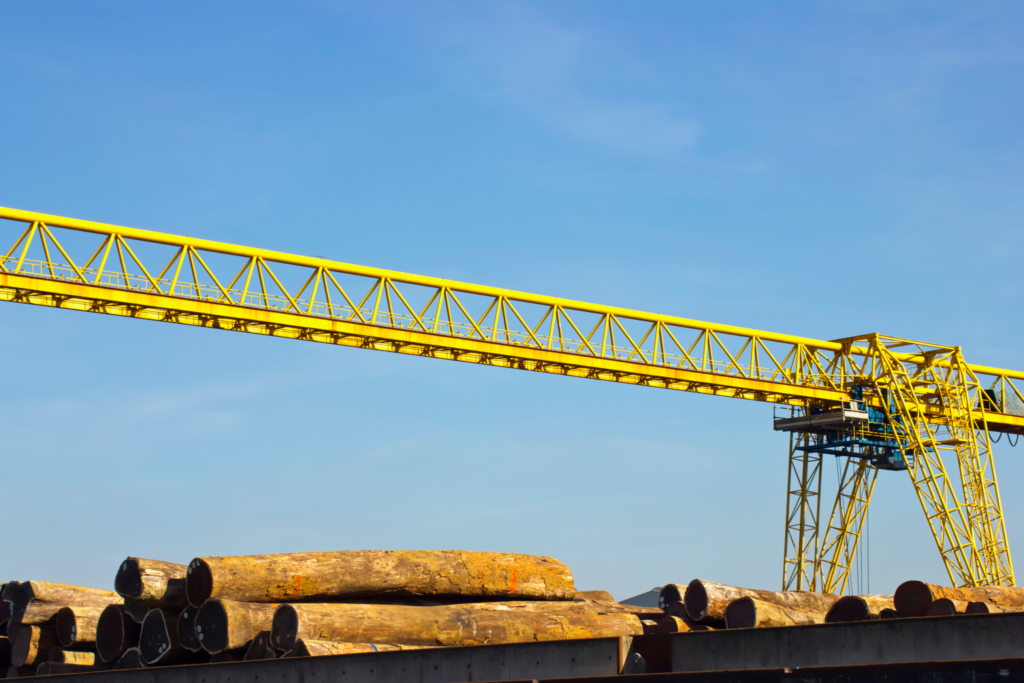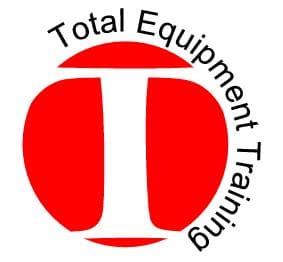On-Site Crane Inspection Services

Crane inspection is a crucial aspect of workplace safety, particularly in industries that rely heavily on these powerful machines for lifting and transporting heavy materials. Regular inspections help identify potential hazards, detect wear and tear, and ensure that cranes are operating in compliance with OSHA standards.
Total Equipment Training provides both crane inspections and onsite crane inspection training so that your supervisors can inspect the cranes on their own. Lifting equipment inspection training makes sense for construction sites with lifting equipment requiring regular safety inspections of rigging equipment. The programs cover the latest rigging equipment standards laid out by OSHA and ASME and include inspection checklists. Classes are a combination of classroom and hands-on training. We also offer inspector certifications. Courses detail inspection requirements and reporting procedures for lifting equipment.
On-Site OSHA Crane Inspections
Heavy equipment cranes come in various types, each designed for specific applications. The two main categories of cranes are mobile cranes and overhead cranes.
Onsite Mobile Crane Inspections
Mobile cranes are self-propelled vehicles that can maneuver around a worksite. They are typically used for construction, industrial applications, and emergency lifting operations. Common types of mobile cranes include:
- Truck-Mounted Cranes: These cranes are mounted on a truck chassis, making them highly mobile and versatile.
- Rough-Terrain Cranes: Designed for rough terrain, these cranes have large tires and sturdy frames for stability and maneuverability.
- Crawler Cranes: Crawler cranes utilize tracks instead of wheels, providing exceptional lifting capacity and stability on uneven surfaces.
Total Equipment Training specializes in mobile crane operator training and annual mobile crane inspection services. Our team of experienced heavy equipment professionals uses an extensive crane inspection checklist to deliver a comprehensive examination of your machines. Once your equipment clears our comprehensive mobile crane inspection, you can get back to work knowing your machine is up to OSHA standards and your crew is safe to do what they do best.
Onsite Overhead Crane Inspections
Overhead cranes are fixed-in-place cranes that operate on a runway system. They are commonly used in manufacturing facilities, warehouses, and steel mills. Types of overhead cranes include:
- Bridge Cranes: These cranes span a bridge-like structure, allowing them to cover a wide area.
- Gantry Cranes: Gantry cranes have two or more legs that support a runway beam, making them suitable for larger workspaces.
- Jib Cranes: Jib cranes are cantilever cranes that extend from a wall or column. They are ideal for confined spaces.
OSHA mandates that guards shall be securely fastened. Therefore, your overhead crane inspection checklist should include a dedicated section to verify the secure fastening of guards, ensuring both safety and compliance with OSHA requirements.
Although the time commitment may seem substantial, investing the necessary time to meticulously review and validate your compliance with each standard is crucial to guarantee adherence to OSHA laws. Learn more about our overhead crane operator training, as well as getting your company’s overhead crane OSHA complaint with Total Equipment Training.
Importance of Crane Inspection
Regular crane inspections are essential for several reasons:
- Prevents Accidents: Identifying and addressing potential hazards before they cause accidents is crucial for protecting workers and preventing downtime.
- Maintains Equipment Reliability: Regular inspections help detect wear and tear, extending the lifespan of cranes and reducing the risk of breakdowns.
- Ensures OSHA Compliance: OSHA mandates regular crane inspections to ensure compliance with safety standards. Failure to comply can result in fines and penalties.

On-Site Crane Inspection Services and Procedures
Total Equipment Training provides comprehensive crane inspection and training services to help businesses maintain OSHA safety & compliance standards, regardless of whether you require regular or annual inspections. We offer classroom-based training and onsite operator training for mobile crane users and overhead crane user training. We also assist with inspector certifications and provide comprehensive crane training materials.
Our experienced inspectors will conduct thorough in-person examinations of all types of cranes to ensure that your equipment meets the necessary standards for safe operation. We adhere to the inspection guidelines outlined in ASME B30.5 (mobile and locomotive cranes) and OSHA 1926.1412 (Subpart CC Cranes & Derricks).
Crane Inspection Frequency
The frequency of crane inspections varies based on factors such as crane type, usage frequency, and operating conditions’ severity. Idle periods necessitate frequent, periodic, or semi-annual inspections, with additional considerations for standby conditions.
Annual in-person crane inspections are recommended as part of routine servicing, while heavier serviced cranes require weekly to monthly checks. For cranes under severe use, scheduling daily to weekly crane inspections is advisable. These assessments encompass various components, including operating mechanisms, brakes, wire ropes, and safety labels.
INITIAL CRANE INSPECTION
Before initial use, all new and altered cranes shall be inspected by a qualified person.
REGULAR SERVICE CRANE INSPECTION
Inspection procedures for cranes in regular service are broken down into two classifications based on the intervals at which inspection should be performed. The crane inspection checklist for cranes in regular service checks the heavy equipment’s condition for routine operations. Inspectors check for any structural damage on wire ropes or crane hooks etc.
ANNUAL COMPREHENSIVE MOBILE CRANE INSPECTION
A qualified person performs a comprehensive inspection at least annually, involving the disassembly of cranes. The examination includes scrutiny of equipment structure such as:
- Equipment structure (including boom and, if equipped, jib)
- Sheaves and drums for cracks or significant wear
- Parts such as pins, bearings, shafts, gears, rollers, and locking devices for distortion, cracks, or significant wear
- Brake and clutch system parts, linings, pawls, and ratchets for excessive wear.
- Safety devices and operational aids
- Gasoline, diesel, electric, or other power plants for safety-related problems (leaking exhaust and emergency shutdown feature) and conditions and proper operation
- Chains and chain drive sprockets for excessive wear of sprockets and excessive chain stretch
- Travel steering, brakes, and locking devices for proper operation
- Tires for damage or excessive wear
- Hydraulic, pneumatic, and other pressurized hoses, fittings, and tubing
- Hydraulic and pneumatic pumps and motors
- Hydraulic and pneumatic valves
- Hydraulic and pneumatic cylinders
- Outrigger and stabilizer pads
- Slider pads
- Electrical components and wiring ropes
- Warning labels and decals (missing or unreadable)
- Originally equipped operator seat (or equivalent)
- Originally equipped steps, ladders, handrails, guards
Any part of the manufacturer’s procedures regarding crane inspections that relate to safe operation that is more comprehensive or has a more frequent schedule of inspection than the requirements outlined above must be followed.
All inspection checklist documents must be available, during the application document retention period, to all persons who conduct crane inspections or appointed personnel. Learn more about what an annual OSHA crane inspection entails.
Crane Load Testing Requirements
All new, reinstalled, altered, repaired, and modified cranes must undergo load testing before initial use. Specifically for crane load testing. All equipment, including overhead cranes, below-the-hook lifting devices, hoists, and hooks, must undergo re-inspection following load testing.
Idle Wire Rope Inspections
Crane wire ropes left unused for more than one month undergo inspection by a qualified person. Inspection includes checking for reductions in diameter, broken or worn wires, corrosion, and kinks or crushes. Infrequently used or idle cranes must undergo inspections before being placed in.

Total Equipment Training’s Crane Inspection Services
Total Equipment Training offers expert and convenient crane inspection services, ensuring businesses maintain safety and compliance with OSHA regulations. Our certified inspectors conduct thorough examinations of various cranes, including mobile and overhead cranes. Committed to providing comprehensive and reliable services, we prioritize safe work environments.
Call us today to discuss your crane inspection needs and benefit from our time and cost savings, being OSHA-compliant standards, and taking proactive issue resolution.
CONTACT US TODAY
(610) 321-2679
